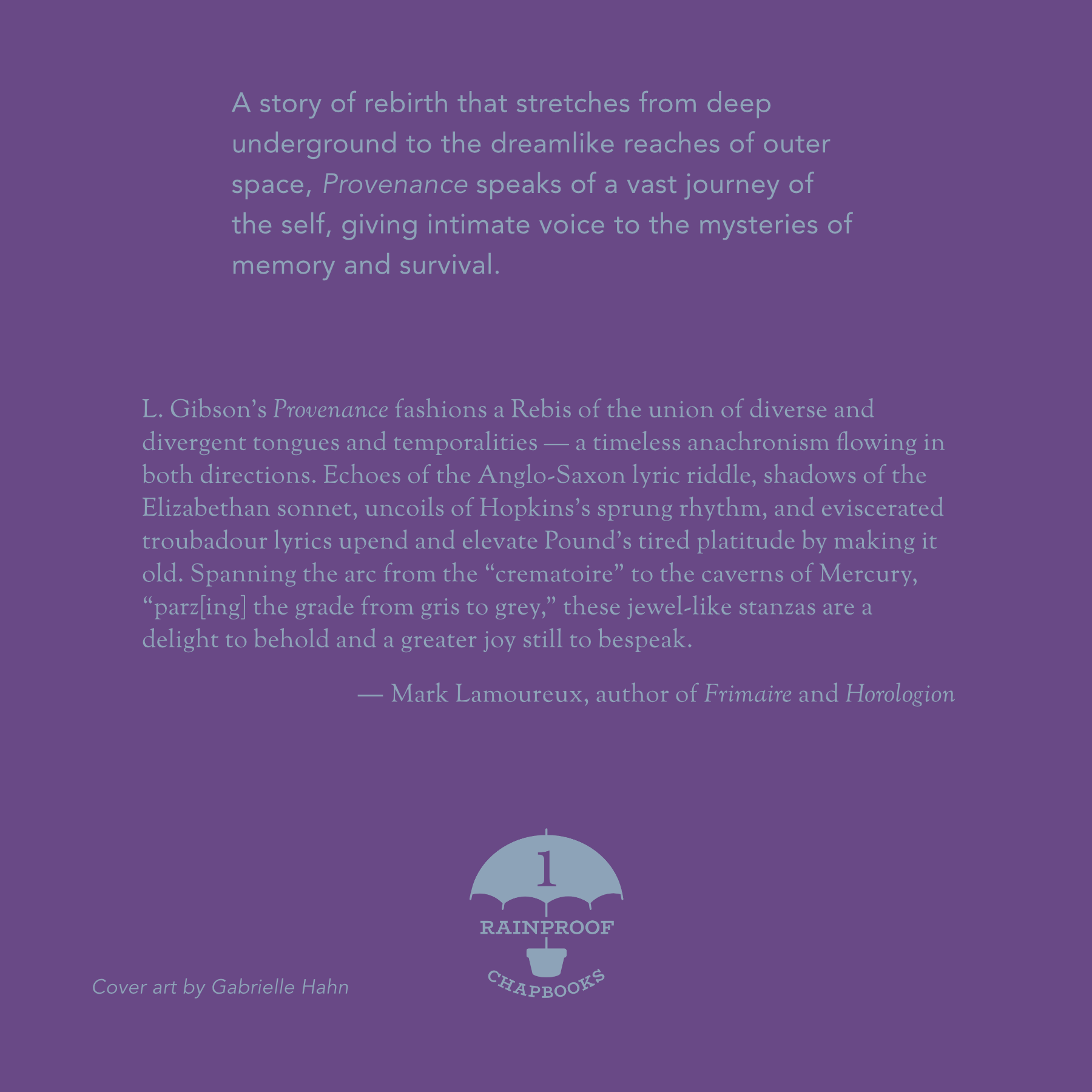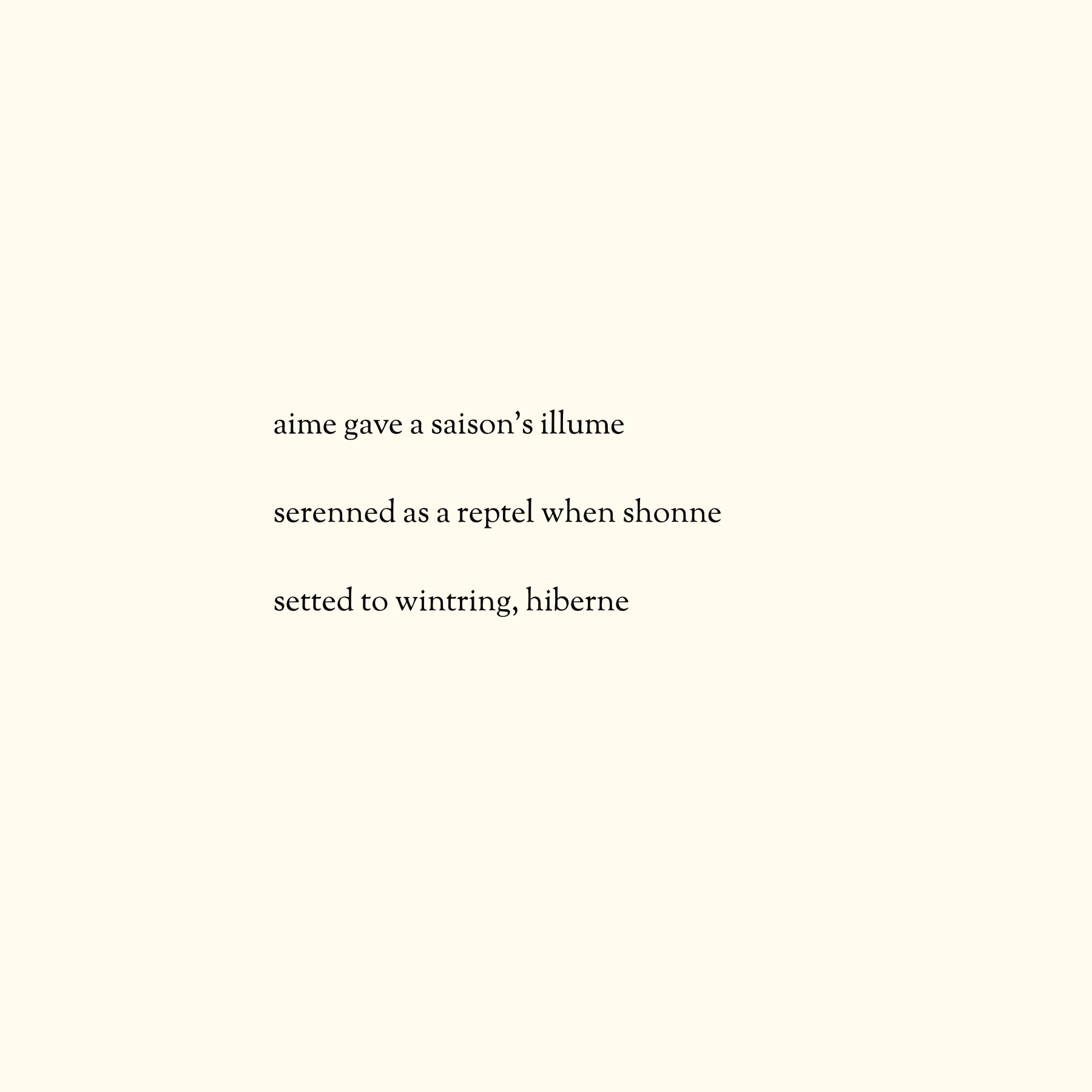Praise for Provenance
“L. Gibson’s Provenance fashions a Rebis of the union of diverse and divergent tongues and temporalities — a timeless anachronism flowing in both directions. Echoes of the Anglo-Saxon lyric riddle, shadows of the Elizabethan sonnet, uncoils of Hopkins’s sprung rhythm, and eviscerated troubadour lyrics upend and elevate Pound’s tired platitude by making it old. Spanning the arc from the ‘crematoire’ to the caverns of Mercury, ‘parz[ing] the grade from gris to grey,’ these jewel-like stanzas are a delight to behold and a greater joy still to bespeak. — Mark Lamoureux, author of Frimaire (White Stag Publishing) and Horologion (Poet Republik Ltd.)
“Provenance invites readers into a collaborative space where past, present, and possible linguistic futures meet. Gibson's alchemy of language is textured, playful, and rhythmic.” — Adrie Rose, editor of Nine Syllables Press and author of Rupture (Gold Line Press) and I Will Write a Love Poem (Porkbelly Press)
“L. Gibson is the most skilled, dextrous, inventive and unique poet of whom I am aware. It is unsurprising to me that Gibson’s work is not widely known yet, because it consciously sheds our quotidian language. At a first glance, it is easy for a reader to be put off by the radical strangeness of Gibson’s poetry. Too often, as readers, we choose comfort over meaning and music. Gibson’s language demands of the reader that they seek to understand the mind and purpose of an ‘autre world,’ whilst promising the ‘th’ essistenze’ of such a world in return for that work. It is of course possible to find our way, or a way, through Gibson’s immediately beautiful, evocative, musical and ambiguous language. First of all, Provenance is presented as a tercet to a page. This gives the reader the right to slow down and contemplate — something that is increasingly difficult and necessary and already a possible reason for Gibson’s refusal of day-to-day language. However, it also evokes the ballad, as does the irregular but largely trimetrical rhythm. More specifically, Gibson’s use of early Modern, French, and contemporary English, makes new the Provençal ballad, and puts love in mind as a theme. However, the language’s relationship with the form is one of unease and secrecy, structured by sibilance and hush as much as it is by song: ‘memorres, like cash in a caffe-tin / [are] stasht sutterain.’ The speaker finds themself removed from ‘boistry, o’erheard’ and ‘slight / beside this colosse’ whose ‘bull heart / no kiln in the cosm could melt.’ Gibson is at the far reach of language in order to reckon with the strife and strain of living. Provenance requires that we ‘unlearn [we] had limbs,’ but with this we find our relationship to the world and language revitalized, and discover what ‘sanguen floued within.’ ” — Andrew Wells, publisher of HVTN Press
About the author
L. Gibson is a poet and critic whose books include Misherit (2019) and Freedom Reread (2023). He lives in western Massachusetts.




